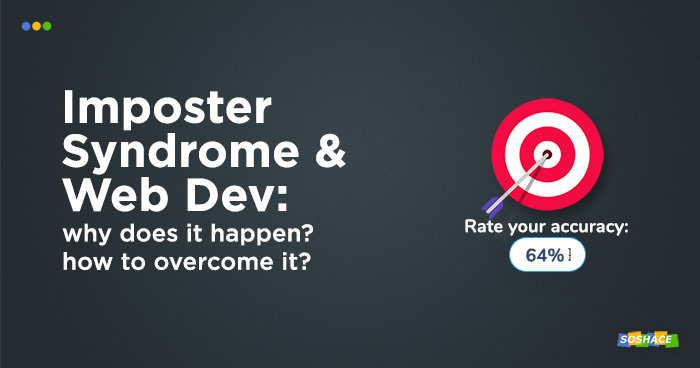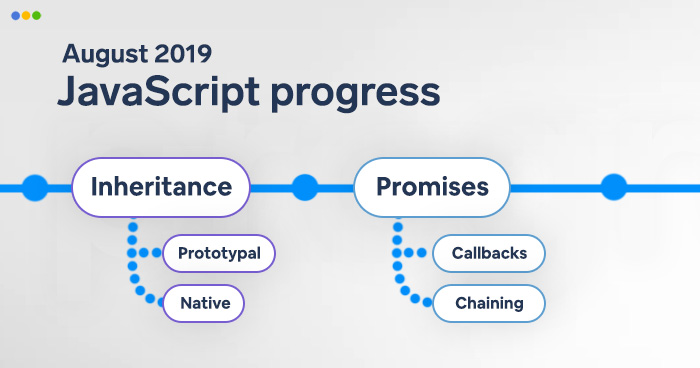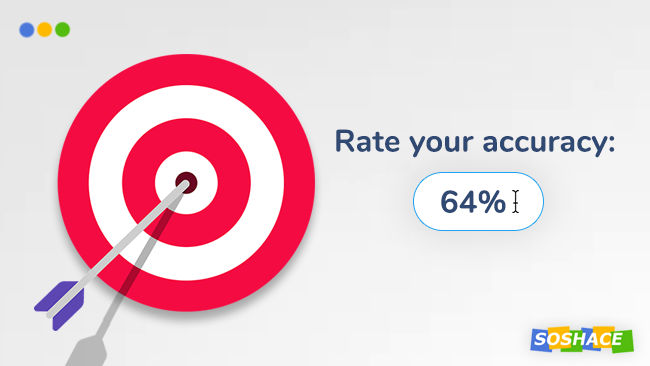
The web development sphere — and the IT world overall — is a great area to build your career and spend many years of adult life in: here, smart and driven people gather together to build great products. To build great products, however, we as the developers need to stay high-performant, smart, and motivated — so we’ve built our work culture around these qualities.
In this “be a genius and work hard” culture, we start to feel that we’re not up to the high standards imposed by the software industry — we have shortcomings, we make mistakes, we don’t know everything. Our mentors, peers, and friends, however, don’t seem to have these issues — and so the imposter syndrome is born.
Imposter syndrome is a pressing issue for all people, but it’s especially prevalent in the development sphere — but why is that? In this article, we will explore the definition of imposter syndrome, analyze the reasons and motivations behind it — and then we’ll outline how you can overcome imposter syndrome.
Defining “imposter syndrome”
The definition of this term, although brief, holds several important points which will help us in this discussion. As clinical psychologist Joe Langford puts it, imposter syndrome is a psychological pattern in which an individual doubts their accomplishments and has a persistent internalized fear of being exposed as a ‘fraud’. Despite external evidence of their competence, those experiencing this phenomenon remain convinced that they are frauds, and do not deserve all they have achieved. Individuals with impostorism incorrectly attribute their success to luck, or as a result of deceiving others into thinking they are more intelligent than they perceive themselves to be.
Even though we perceive this term as clear and obvious, the definition highlights some points which aren’t so-self evident. For instance:
- The fear of being exposed is persistent, meaning that becomes an inherent part of the person’s self-perception.
- Even hard external evidence (e.g. a certificate or success in the job) cannot negate the syndrome’s effects.
- It even forces the person to believe that they’re an outright liar and deceiver.
Obviously, this leads to both personal and interpersonal problems: doubting one’s abilities leads to decreased performance and worse team spirit. Imposter syndrome often happens in so-called “transition periods” — time frames in which you’re adapting to a new environment and its ruleset (e.g. entering high school, university, or a new job).
Interestingly enough, imposter syndrome also provides certain benefits: a healthy dose of it (if there actually even is a “healthy dose of imposter syndrome” in the first place) can encourage the developer to stay motivated and strive for more. Essentially, it helps us to remember Steve Jobs’ Stay hungry, Stay foolish
motto.
Since the imposter syndrome is so prevalent in the development sphere, we can re-define this term like this:

This leads us to an important question: if the web development world is so friendly and welcoming, how come imposter syndrome is such a frequent occurrence?
So why does imposter syndrome occur?
The developer community, speaking technically, has the global() attribute — being global is one of its foundational features. This offers a wide range of opportunities: working and hiring remotely, easily sharing ideas, and so forth. However, it also means that each developer has literally a whole world to compare themselves against.
As Soshace developer Kirill Novik says in his recent interview: Software development is a fast-paced, goal, and productivity-oriented, extremely stressful activity. Working as a developer means you sign up for high levels of constant anxiety and self-doubt.
This, in turn, facilitates the false feeling of being incompetent, while every single person around you is apparently a genius.
Unrealistic job requirements
Every developer starts their journey with the job search — and unrealistic job requirements make the whole journey seem unbearably hard. This happens when a company doesn’t have — so the HR managers just slap as many buzzwords as possible on the job description hoping that they stick. With recent data science/machine learning craze, more and more job requirements are starting to include data science skills — even if the company has no clue how to utilize this potential (if only they read our overview of data science!..)

Unrealistic job requirements are easy to spot for a seasoned programmer, but a new developer would think that these are simply industry standards: Well, they did tell me that getting into web development is hard… Additionally, this leads beginner developers to believe that all other junior developers actually possess these skills — and imposter syndrome grows even stronger.
To address this problem, we can turn to the conventional wisdom that developers pass on from generation to generation: you don’t have to match 100% of the job requirement. More often than not, the company will allow you to learn some technologies if you have no experience with them — the onboarding process accounts for it.
The tricky part, of course, is understanding which technologies can be learned along the way and which are absolutely crucial and should be learned as a basis (hint: you should better learn sorting algorithms beforehand!)
Social media and social pressure
Social media is a major contributor to the imposter syndrome: on Facebook and Instagram, the “Watch me enjoy my ideal life” content is ubiquitous, while Twitter has a fair share of “Let me make a witty comment and wake up famous” extravaganza. Each social media platform is different, but they all share the same goal: provide a pristine image of how perfect people live their lives and work.

In the case of developers, we typically see these examples:
- Check my awesome desk setup out! I’m rocking 2019 15” Mackbook Pro, Apple’s new Pro Display HDR as external monitor #1, LG 5K Monitor as an external monitor #2, iPhone XS Max as my daily driver — and the company actually paid for all of that!
- I’m blessed to be working in this team! I’m surrounded by the best JavaScript developers the industry has ever seen — throughout my time in this company, these guys have become my mentors and closest friends! Thank you @teamWaterfall!
- Just finished my talk at #TheTech2019; got feedback from industry idols like @linus_torvalds, @BrendanEich, and @sundarpichai that my talk made their passion for tech even stronger!!
- As a digital nomad, I’ve traveled to 20 countries in 2019 — and still counting! I’m currently spending my vacation surfing in Bali, so make sure to hit me up if you’re in the area! Then I’ll be moving to Switzerland to collaborate with @apple on the design of the Apple Watch Series 5 — stay tuned!
- I’ve just eaten three pizzas!
Although many of these posts are genuine in their nature and don’t mean to humble-brag, it goes without saying that consuming this type of content on a daily basis is quite detrimental to your mental well-being. Seeing people around you succeed is a great motivational factor, but only seeing the “success story” without acknowledging the hardship and obstacles is another story.
How to overcome imposter syndrome
Overcoming this obstacle may seem tricky, but you need to remember: the most important part is understanding that nobody is perfect. The development world idolizes perfection, so it’s hard to admit that, on some days, your work just isn’t good enough, that you made a critical mistake, that you didn’t seize an opportunity when it presented itself — but we all have to admit it. Despite our shortcomings and flaws, we’re still doing a pretty good job — remember your favorite open-source project or countless situations when technology saves lives.
Prove your knowledgeability to yourself

Tech blogging is a great way to prove your proficiency to the world — but it also proves it to yourself. It’s tempting to think that you have nothing interesting to say — wrong! You are at some point in your life with both successful and not-so-successful experiences, so talk about them. What new information are you learning? Which projects are you planning/working on? Which aspect of the developing world can be improved upon?
At first, your audience will be relatively small, but that shouldn’t discourage you — you’re writing for yourself. Blogging is writing, which means that your conscience gets an opportunity to re-process old information. So, by writing tech-related blog posts you help your mind process your experience and take yourself more seriously as a developer.
Track your progress

You learn something new every day, day in and day out — but most developers don’t really notice the progress they make. This leads to a tricky situation: months and years of development work have gone by, but it’s incredibly hard to summarize them. To avoid this pitfall, you should track your progress with any tool that you find suitable:
- “Global” to-do lists will help you manage the most important achievements; as the name suggests, these lists will track the global changes in your career — a good example would be mastering a new technology or starting your own project.
- Day-to-day lists, on the other hand, will help you Although a single little task like fixing a bug isn’t an achievement in and of itself, this type of list makes you more focused and organized — and a developer with these qualities definitely isn’t an imposter!
Thankfully, these lists are flexible — you can use your favorite tools to implement them: it can be Microsoft To-Do, Things, or kanban boards like Jira and Trello.
Conclusion
Imposter syndrome is a problem that many developers share — we’re always striving for greatness, but often feel that we’ll never reach it. Even though this problem gets multiplied by factors like social media, other technologies can be used to actually help us overcome this syndrome. All in all, every person deserves their spot in the developer community! 🙂






